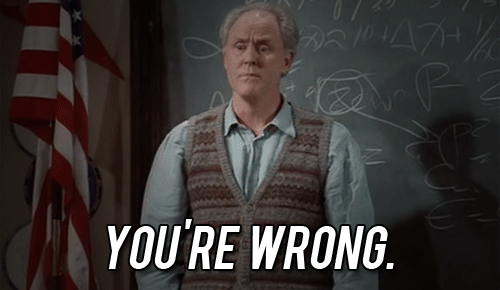Kishkumen wrote:canpakes:
How has the action against Jones brought greater clarity to the definition of hate speech or the location of the boundaries?
I don’t think that it has brought any greater clarity to the
definition of hate speech. I see their classification of Jones’ output (for lack of a better word) as nebulous. And I think that’s intentional.
What it does do, though, is draw a slightly clearer line in the sand on the location of the
boundaries, even if there are no specifics offered. Most rational people can accept that Jones’ output has spurred some folks to commit dangerous, irrational actions arguably motivated by malice or ‘hate’. So, while we can’t formulate a precise cause and effect relationship, specific events can be linked to specific items from Jones’ menu of conspiracies.
It is, in a way, like the ‘bare shoulders’ theory of porn. Probably few folks can define exactly why bare shoulders became considered bad form (at least in the LDS community), and it’s not clear that exposure to bare shoulders leads anyone to commit socially unsavory or dangerous actions, but like so much of what is considered to lay within the realm of ‘porn’, bare shoulders in and of themselves set a boundary of sorts best left uncrossed by community members in general. Thus it becomes a standard by which to render judgment. Same for Apple and Google; they don’t have to define what makes Jones’ rants ‘hate’ speech so much as link it to the possibility of bad outcomes, and their desire to avoid looking complicit in such. And the community will hopefully police itself accordingly, or suffer some degree of shunning.
And where does that leave Shapiro? He has to deal with a nebulous definition of a type of bad behavior. This kind of constraint does not sit well with conservatives. They’re not into nuance or grey zones in general, and when it comes to their own behavior, they seem much happier to have ‘bad’ explicitly spelled out and the rules plainly decided, so that they can know what they can do that gets
as close as possible to the boundary while still pointing out that they are not at fault for any consequence because they did not explicitly cross that boundary. For many of them, rules don’t exist to suggest good behavior so much as tell them
what they can get away with.
And I’ll stick to my guns on the notion that Shapiro’s criteria example - “how many conspiracy theories offered up”, etc. - is a purposeful diversion and trap because what qualifies as a flagrantly bad example would
never be defined by anyone in the conservative realm. They’d leave that to centrists, liberals and rationals, then decry the ‘censorship’ of having to adhere to and suffer from
any type of definition, allowing them to rationalize their acceptance and continuation the same behavior while simultaneously being able to play yet another persecution card.
I’m sure that this sounds cynical, and I wish that the everyday experience offered by the world of conservative thought offered something different, but it doesn’t. If you don’t believe me, just spend a few weeks listening to conservative talk radio.







